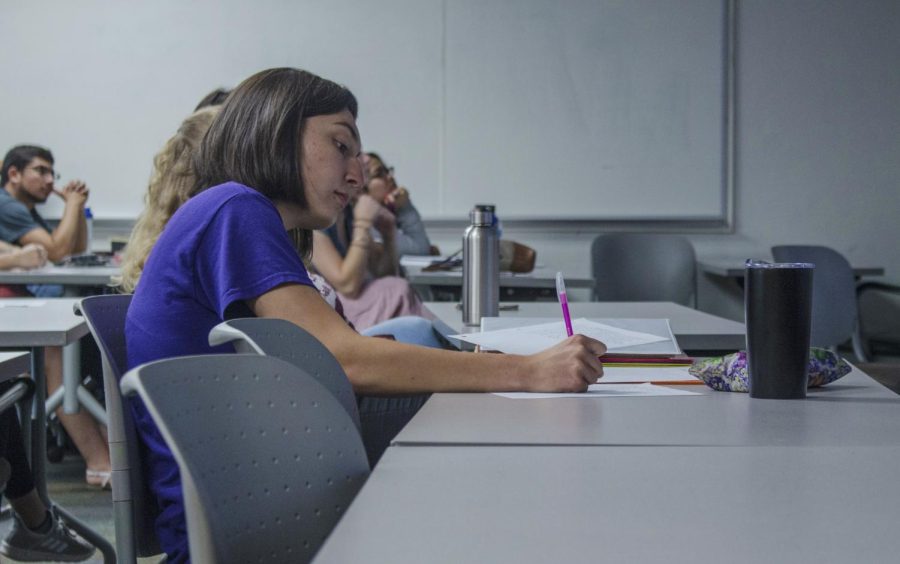Active Minds holds suicide prevention training
With 64 percent of college students dropping out due to mental illness, a Kent State organization, Active Minds, held an event Tuesday about warning signs of suicidal tendencies and how to intervene when someone is distressed.
The Kognito Training Program changes the game from avoiding difficult conversations about depression to facing them head on with your friends.
The program itself is a roleplaying simulator which introduces you to a group of friends in the middle of the semester. As the months progress in the simulation, you watch as one of your friends begins to struggle with difficult life changes.
The simulation will prompt you with a situation involving your friend. For example, this friend has dropped their major and is struggling to leave the house. You can start with small talk or jump right into the deep conversation about how they have not been around. If you make a mistake you can undo it, but your goal is to get your friend to accept going to counseling.
The final segment is approaching them in a one-on-one conversation to provide guidance and information on where to find help.
“We just want you to be able to connect people to resources and ultimately, that’s our goal,” said Megan Anderson, graduate student who works part-time at the Center for Public Policy and Health in the College of Public Health.
“(The) main objective is to change the conversation about mental health and well-being as a whole,” said Kayla Marker, president of Active Minds.
Alison Malmon was a freshman at the University of Pennsylvania in 2000 when her brother died by suicide. She created Active Minds in 2003 in his memory. In the spring semester of 2019, an Active Minds chapter was established on the Kent State campus.
Marker made the date of the event Sept. 10 because it is National Suicide Prevention Day.
The main points of the training are to be non-judgmental and to let the people you are talking to know you are there for them. Do not offer advice unless someone has asked you for it personally to avoid making them feel attacked. Being patient and empathetic can go a long way.
“I learned that it’s best to give advice in a phrase of a question,” Jordan Worrell, senior music major, said. “Instead of saying, ‘I think you should go to counseling’, you could say, ‘have you ever considered counseling?’ It’s a much less direct and judgmental way to help out without them even knowing that you’re trying to help them.”
Other resources provided by Kent State University include the Step Up, Speak Out app, which provides the closest help and information, therapy offered by Psychological Services and at the DeWeese Health Center and Mental Health Screenings held on campus throughout the semester.
If you or some you know is struggling, call the National Suicide Hotline: 1-800-273-8255.
If the situation is serious, call 911.
Ryanne Locker is a social sciences reporter. Contact her at [email protected].



